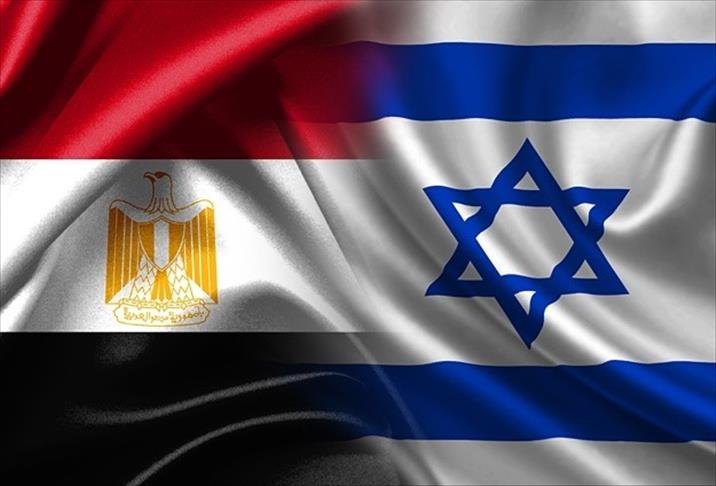
CAIRO
Israel has reopened its embassy in Egypt after a four-year closure, a move seen by analysts as reflecting a major improvement in relations between the two neighboring countries.
The Israeli embassy was evacuated in 2011 after protesters tore down the Israeli flag and ransacked the building following the cross-fire killing of five border guards by the Israeli army in Sinai.
Tareq Fahmi, an expert on Israeli affairs, said international law “dictates that countries having normal ties should open embassies”.
“Egyptian-Israeli relations are not tense at present, which has culminated in the reopening of the Israeli embassy,” he told Anadolu Agency on Thursday.
Saeed al-Lawendi, an expert on international affairs, cited “common interests” of both Egypt and Israel for the embassy inauguration “despite the massive popular opposition to rapprochement between Egypt and Israel”.
“The embassy inauguration is a kind of political flattery between the two states,” he told Anadolu Agency.
Egypt was the first Arab country to recognize Israel following the signing of their peace treaty in 1979.
Israel, which occupied Egypt’s Sinai Peninsula for six years prior to the 1973 Arab-Israeli War, is still viewed in a negative light among much of the Egyptian public due to its heavy-handed treatment of Palestinians in the occupied territories.
Political cleverness
Lawendi said that Israel sees stability in Egypt serves its interest, describing Egypt’s decision to permit the reopening of the Israeli embassy as “political cleverness”.
“This is a smart political move on the part of Egypt’s authorities since it pacifies the Israeli front amid a state of turmoil in the region.”
During the embassy inauguration, Israeli Foreign Ministry Director-General Dore Gold praised Egyptian President Abdel-Fattah al-Sisi for “working for the Middle East's stability and prosperity”.
Lawendi, however, claimed that the inauguration of the Israeli embassy would not have a negative impact on the Palestinian cause.
“The Palestinian issue will remain a top priority for the Egyptian regime,” he said, going on to rule out any military cooperation between Cairo and Tel Aviv to strike the Palestinian resistance in Gaza.
Israel has imposed a crippling siege on the Gaza Strip since Palestinian resistance group Hamas seized control of the territory in 2007.
Egyptian authorities, meanwhile, have tightened border closure with the Gaza Strip since 2013, after elected President Mohamed Morsi was ousted in a military coup.
- Distinguished ties
Political expert Mohamed Seiful-Dawla said that the embassy inauguration reflects the distinguished relations between Israel and the Sisi administration.
“Egyptian-Israeli relations no longer need any mediator,” Seiful-Dawla told Anadolu Agency.
He argued that efforts by Egypt’s ruling regime – reflected in the setup of a buffer zone with Gaza, the closure of the Rafah crossing and the destruction of underground tunnels – aim to win Israel’s support in order to gain international recognition.
“[The Sisi administration] has relatively succeeded in this,” he said.
Sisi, a former army chief, was elected president last year after he led the military to depose Morsi, Egypt’s first freely elected president.
Seiful-Dawla argued that the reopening of the Israeli embassy on Sept. 9 – the same day when the embassy was ransacked in 2011 – was meant to send a message to “revolutionaries that you should go to hell”.
“This is an insult,” he added.
Anadolu Agency website contains only a portion of the news stories offered to subscribers in the AA News Broadcasting System (HAS), and in summarized form. Please contact us for subscription options.







